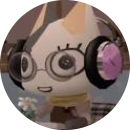Students ....... their coats before entering a lecture hall

Những câu hỏi liên quan
Cho em hỏi phần chia thì này ạ1. If I were a bird, I _______________. (fly)2. A lecture _____________ being presented at Lapidus Hall this week. (be)3. Please wait for him until he back. (come)4. She French before she began studying English in 1990. (study)5. If my father ____________ me money, I would buy a new bicycle. (give)6. What ______________ if you were unemployed? (happen)7. It ____________ quicker if you use a computer.(be)8. If we have some eggs, I _____________ you a cake.(make)9. I...
Đọc tiếp
Cho em hỏi phần chia thì này ạ
1. If I were a bird, I _______________. (fly)
2. A lecture _____________ being presented at Lapidus Hall this week. (be)
3. Please wait for him until he back. (come)
4. She French before she began studying English in 1990. (study)
5. If my father ____________ me money, I would buy a new bicycle. (give)
6. What ______________ if you were unemployed? (happen)
7. It ____________ quicker if you use a computer.(be)
8. If we have some eggs, I _____________ you a cake.(make)
9. I haven’t met him since he _____________ school. (leave)
10. Can you come to my party next Sunday?
11. I’m sorry. I _________ __ my old form teacher in the countryside. (visit)
1. would fly
2. is
3. come
4.studied
5. gave
6. happened
7. will be
8. will make
9. left
11. will visit
Đúng 0
Bình luận (0)
1. If I were a bird, I _______would fly________. (fly)
2. A lecture _______is______ being presented at Lapidus Hall this week. (be)
3. Please wait for him until he comes back. (come)
4. She had studied French before she began studying English in 1990. (study)
5. If my father ______gave______ me money, I would buy a new bicycle. (give)
6. What _____would happen_________ if you were unemployed? (happen)
7. It ____will be________ quicker if you use a computer.(be)
8. If we have some eggs, I _____will make________ you a cake.(make)
9. I haven’t met him since he ______left_______ school. (leave)
10. Can you come to my party next Sunday?
11. will visit
Đúng 0
Bình luận (0)
Giải thích giúp mình nhéeeee
You ... take their shoes off before entering a Japanese house.
A. can B. have to C. may D. might
Put the verbs between brackets into their correct form
1. Have you ever watched people (try)(catch) fish ?
2. If you dislike(peel)onions , try (hold) them under water while (do) so.
3.There'll be an opportunity (ask) questions before (leave)the hall after (hear)the lecture.
4.His ideas are worth (listen to) in spite of (they,sound) so impractical.
: ______ , he found everyone waiting for him.
A. Entering the hall B. Entered the hall
C. Being entered into the hall D. To have entered in the hall
Xem thêm câu trả lời
viết lại câu sử dụng mệnh đề quan hệ :
1.my father lives in a small house full of ornaments . This makes it really difficult to learn.
➜my father
2.some students take a year out before university . This allows them to work or travel.
➝some students
3 the Guggenheim Museum is in BillBao.It only displays contemporary art .
➜
4 the lecture was about current economic policy.It was not easy to understand
➜the lecture
5. In 1990 my parent arrived in New York . They stayed there for the rest...
Đọc tiếp
viết lại câu sử dụng mệnh đề quan hệ :
1.my father lives in a small house full of ornaments . This makes it really difficult to learn.
➜my father
2.some students take a year out before university . This allows them to work or travel.
➝some students
3 the Guggenheim Museum is in BillBao.It only displays contemporary art .
➜
4 the lecture was about current economic policy.It was not easy to understand
➜the lecture
5. In 1990 my parent arrived in New York . They stayed there for the rest of their lives
➜my parents arrived in New York
viết lại câu sử dụng mệnh đề quan hệ :
1.my father lives in a small house full of ornaments . This makes it really difficult to learn.
➜my father lives in a small house full of ornaments which this makes really difficult to learn.
2.some students take a year out before university . This allows them to work or travel.
➝some students take a year out before university whom this allows to work or travel.
3 the Guggenheim Museum is in BillBao.It only displays contemporary art .
➜ the Guggenheim Museum only displays contemporary art is in BillBao.
4 the lecture was about current economic policy.It was not easy to understand
➜the lecture was not easy to understand was about current economic policy
5. In 1990 my parent arrived in New York . They stayed there for the rest of their lives
➜my parents arrived in New York in 1990 where they stayed for the rest of their lives
Đúng 0
Bình luận (0)
1.my father lives in a small full ofhouse ornaments . This makes it really difficult to learn.
➜my father lives in a small full ofhouse ornaments, which makes it really difficult to learn.
2.some students take a year out before university . This allows them to work or travel.
➝some students take a year out before university , which allows them to work or travel.
3the Guggenheim Museum is in BillBao.It only displays contemporary art .
➜the Guggennheim Museum , which only displays contemporary art, is in BillBao
4 the lecture was about current economic policy.It was not easy to understand
➜the lecture , which was not easy to understand, was about current economic.
5. In 1990 my parent arrived in New York . They stayed there for the rest of their lives.
➜In 1990 my parents arrived in New York,where they stayed for the rest of their lives.
Đúng 0
Bình luận (0)
Education is another area of social life in which information technology is changing the way we communicate. Today’s college students may not simply sit in a lecture or a library to learn about their field. Through their computers and the wonders of virtual reality they can participate in lifelike simulated experiences and consider the following scenario of the future of education made possible through developments in information technology.For children over the age of 10, daily attendance at sc...
Đọc tiếp
Education is another area of social life in which information technology is changing the way we communicate. Today’s college students may not simply sit in a lecture or a library to learn about their field. Through their computers and the wonders of virtual reality they can participate in lifelike simulated experiences and consider the following scenario of the future of education made possible through developments in information technology.
For children over the age of 10, daily attendance at schools is not compulsory. Yet, some of the older children attend school only once or twice weekly to get tutoriol support or instruction from a teacher. For the most part, pupils are encouraged to work online from home. Students must complete a minimum number of study hours per years; however, they may make up these hours by studying at home at times that suit their family schedule. They can log on early or late in the day and even join live classes in other countries. In order to ensure that each student is learning adequately, computer software will automatically monitor the number of hours a week each student studies online as well as that students’ learning materials and assessment activities. Reports will be available for parents and teachers. The software can then identify the best learning activities and condition for each invidual student and generate similar activities. It can also identify areas of weak achievement and produce special programs adjusted to the students’ needs.
Question 28: What is the topic of the passage?
A. Computer software will make sure students learn at home.
B. Students don’t have to go to school any more.
C. The effect of information technology on education.
D. Students can know about their weak aspects to focus.
Question 29: How many times are children who are older than 10 required to go to school weekly?
A. No time. B. Once or twice. C. Three. D. Four.
Question 30: Who/ What counts the number of hours per week that students spend learing?
A. Virtual reality. B. Teacher.
C. Computer software. D. Parents.
Question 31: What CAN’T the software do?
A. Design materials for the students. B. Monitor the time the students learn.
C. Find out the best activities for the students. D. Identify weaknesses of the students.
Question 32: What is NOT MENTIONED as a benefit of information technology to the students?
A. Students can stay at home to learn.
B. Students can learn at times that suit their schedule.
C. Students’ weak achievement can be identified.
D. Students’ learning time won’t be monitored.
Education is another area of social life in which information technology is changing the way we communicate. Today’s college students may not simply sit in a lecture or a library to learn about their field. Through their computers and the wonders of virtual reality, they can participate in lifelike simulated experiences and consider the following scenario of the future of education possibly made through developments in information technology.For children over the age of 10, daily attendance at s...
Đọc tiếp
Education is another area of social life in which information technology is changing the way we communicate. Today’s college students may not simply sit in a lecture or a library to learn about their field. Through their computers and the wonders of virtual reality, they can participate in lifelike simulated experiences and consider the following scenario of the future of education possibly made through developments in information technology.
For children over the age of 10, daily attendance at schools is not compulsory. Yet, some of the older children attend school only once or twice weekly to get tutorial support or instruction from a teacher. For the most parts, pupils are encouraged to work online from home. Students must complete a minimum number of study hours per year; however, they may make up these hours by studying at home at time that suit their family schedule. They can log on early or late in the day and even join live classes in other countries. In order to ensure that each student is learning adequately, computer software will automatically monitor the number of hours a week each student studies online as well as that students’ learning materials and assessment activities. Reports will be available for parents and teachers. The software can then identify the best learning activities and condition for each individual student and generate similar activities. It can also identify areas of weak achievement and produce special programs adjusted to the students’ needs.
Question 22: What is NOT MENTIONED as a benefit of information technology to the students?
A. Students’ learning time won’t be monitored. B. Students’ weak achievement can be identified.
C. Students can stay at home to learn. D. Students can learn at time that suit their family schedule.
Question 23: What CAN’T the software do?
A. Monitor the time the students learn. B. Identify weaknesses of the students.
C. Find out the best activities for the students. D. Design materials for the students.
Question 24: How many times are children who are older than 10 required to go to school weekly?
A. No time B. Once or twice C. Three D. Four
Question 25: Who/ What counts the number of hours per week that students spend learning?
A. Teacher B. Computer software C. Virtual reality D. Parents
Question 26: What is the topic of the passage?
A. Students can know about their weak aspects to focus. B. Students don’t have to go to school any more.
C. The effect of information technology on education.
D. Computer software will make sure students learn at home.
Hãy xác định những thông tin sau là Đúng (True) hay Sai (False).The school year in Vietnam runs from September through the first of June. It is divided into two semesters. The first semester begins in September and ends before the Lunar New Year, while the second one begins right after the first one and lasts until June the first. Children in Vietnam go to school six days a week from Monday to Saturday and a typical school day runs from 7:00 to about 11:30 in the morning. Vietnamese students are...
Đọc tiếp
Hãy xác định những thông tin sau là Đúng (True) hay Sai (False).
The school year in Vietnam runs from September through the first of June. It is divided into two semesters. The first semester begins in September and ends before the Lunar New Year, while the second one begins right after the first one and lasts until June the first. Children in Vietnam go to school six days a week from Monday to Saturday and a typical school day runs from 7:00 to about 11:30 in the morning. Vietnamese students are expected to take school very seriously and to work hard. Most periods begin with a small test. The teacher calls on some students to stand and answer a few questions to check their understanding of the last lesson.
After school, Vietnamese students take part in a lot of activities. Some students play sports. Soccer, table tennis, and badminton are the most popular. Others enjoy going swimming. A few students like music and movies. They often practice playing musical instruments in the music hall or go to the cinema with their friends to see the latest films. In addition, some students play video games or computer games or stay at home to help their parents. The after-school activities above help students find friends with similar interests, develop their talents, and sometimes even discover their career goals.
The teacher often tests the students’ knowledge of the last lesson before starting new lessons.
A. True
B. False
Đáp án: A
Giải thích: Most periods begin with a small test. The teacher calls on some students to stand and answer a few questions to check their understanding of the last lesson.
Dịch: Hầu hết các giai đoạn bắt đầu với một bài kiểm tra nhỏ. Giáo viên kêu gọi một số học sinh đứng và trả lời một số câu hỏi để kiểm tra sự hiểu biết của họ về bài học cũ.
Đúng 0
Bình luận (0)
He said to me , “ keep a seat for me in the lecture hall.”
He said to me , “ keep a seat for me in the lecture hall.”
He told me to keep a seat for him in the lecture hall
Đúng 0
Bình luận (0)
he said to me keep a seat for him in the lecture hall
Đúng 0
Bình luận (0)

































